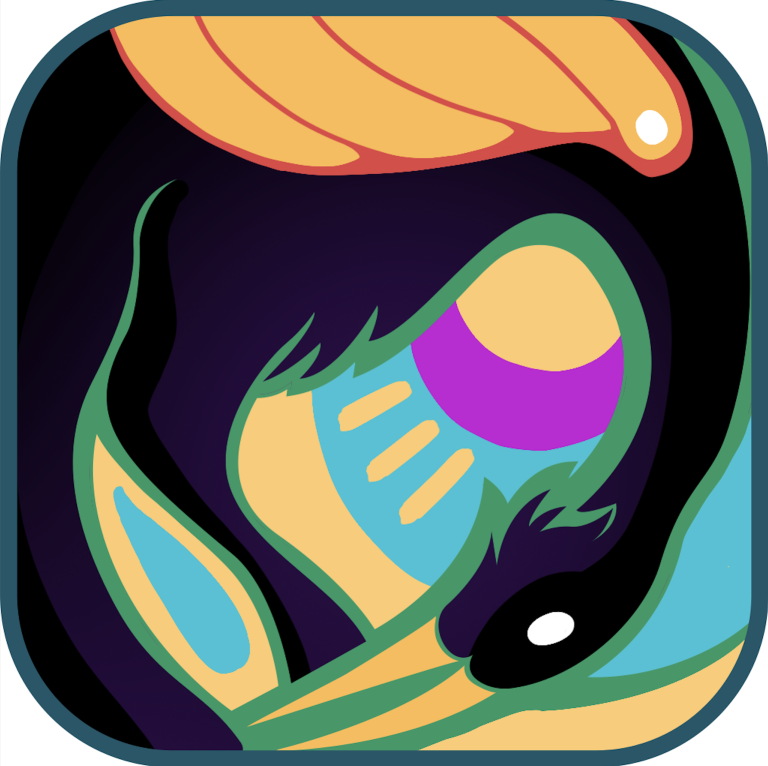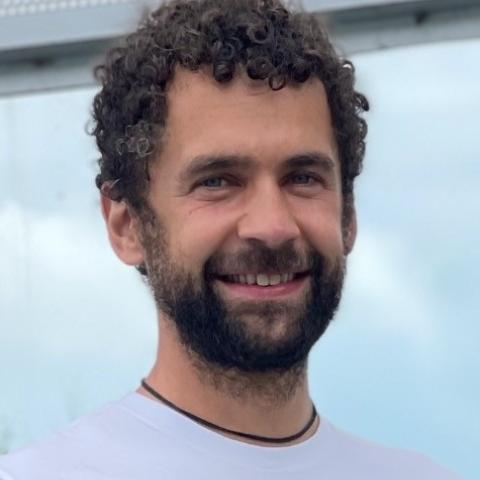Wezhinoo'igejig: Ojibwe Scholars in Early Childhood
Pursue a bachelor's degree at the Institute of Child Development
In Ojibwe, Wezhinoo’igejig (way-shi-NOO-i-GAY-jig), means “the ones who show or point the way.” The Wezhinoo’igejig: Ojibwe Scholars in Early Childhood focus in the Early Childhood BS degree program combines coursework in child development, early childhood teaching methods, and Ojibwe immersion pedagogy. This option is designed for early childhood professionals looking to increase their skill in using the Ojibwe language in their work with children, pointing the way to continued Ojibwe language revitalization and building on the great work that has been taking place throughout the Great Lakes region over the last decades. Wezhinoo’igejig scholars will graduate with a bachelor’s degree, equipped with the background and skills needed to become leaders in the early childhood Ojibwe language reclamation movement.
This focus area of the Early Childhood program was specifically designed to accommodate non-traditional students who already have college credits or an associate’s degree and who wish to return to school while remaining in their jobs and communities and therefore require a remote option. The program culminates in a bachelor's degree and does not prepare students for a Minnesota public school teaching license.
Admission is currently closed. Please email us at ec-ojibwe@umn.edu if you would like to be notified when our next application window opens.

"Crane feeding its young"
Artist: Ian Pixley

About Wezhinoo'igejig: Ojibwe Scholars in Early Childhood
This program is recommended for someone:
- Currently working in an early childhood setting serving Native children who wants to pursue a bachelor's degree
- With Ojibwe language experience and interest in Ojibwe language revitalization
- With previous college credits or an associate's degree
Tribal partners and background
This initiative began after a series of conversations with education officials from Tribal Nations and Tribal Colleges in Minnesota, directors at Tribal Head Start programs, veteran early childhood educators, and representatives from the College of Education and Human Development (CEHD) at the University of Minnesota.
CEHD aims to support the vital work of maintaining, preserving, and restoring the Ojibwe language by offering an educational pathway for students interested in completing a bachelor's degree in early childhood. Graduates of the program will be equipped to teach in full or partial immersion early childhood programs, with an emphasis on Ojibwemowin and Ojibwe cultural heritage.
The University of Minnesota Twin Cities campus is located on the traditional, ancestral, and contemporary lands of the Dakota people and was acquired illegally. The University also resides on Native lands elsewhere across the state. CEHD acknowledges the findings of the TRUTH Project (Towards Recognition and University-Tribal Healing) and aims to respond to these historical wrongs by supporting the mission of the Tribal Colleges and by supporting Native students.
Scholarship program
The Wezhinoo’igejig Ojibwe Scholars in Early Childhood scholarship program provides generous financial support to students, including full tuition coverage and a living stipend.
Preference for the scholarship program will be given to applicants with an associate's degree, work experience in an early childhood setting, and Ojibwe language skill. All U.S. citizens regardless of Tribal affiliation or state of residency are eligible to apply.
Coursework
To complete the degree, Wezhinoo’igejig scholars take courses in child development, early childhood teaching methods, and Ojibwe immersion pedagogy. All courses are offered remotely and, to the extent possible, in the evenings, to accommodate a typical teacher’s work schedule. Students will work with an academic advisor to select at least two courses per semester to enroll in and, if possible, a third or even a fourth class, so as to reach graduation at a timely rate. The timeline to graduation will vary depending on students’ previous educational experience and the number of courses enrolled in per semester.
Research-based courses in child development prepare Wezhinoo'igejig scholars to understand the physical, social, and biological growth and development of children from birth through age eight.
Required for all students:
- CPSY 2301 - Intro to Developmental Psychology
Choose one from:
- CPSY 4302 – Infant Development
- CPSY 4311 – Behavioral and Emotional Problems of Children
- CPSY 4331 – Social and Personality Development
- CPSY 4336 – Development and Interpersonal Relationships
Choose one from:
- CPSY 4341 – Perceptual Development
- CPSY 4343 – Cognitive Development
- CPSY 4345 – Language Development and Communication
- CPSY 4329 – Biological Foundations of Development
A special section of at least one of our early childhood teaching methods courses—critically reconsidered from an Ojibwe-centered cultural perspective and taught by Indigenous instructors whenever possible—will be offered to Wezhinoo'igejig scholars each semester.
- CPSY 5241 – Field Experience in Early Childhood
- CPSY 5251W – Social and Philosophical Foundations
- CPSY 5252 – Facilitating Social and Emotional Learning
- CPSY 5253 – Facilitating Cognitive and Language Learning
- CPSY 5254 – Facilitating Creative and Motor Learning
- EPSY 3625 – Education of Infants, Toddlers and Preschool Children with Disabilities: Introduction
- CPSY 5991 – Independent Study in Child Development
Wezhinoo’igejig scholars take up to 9 credits of Ojibwe language use-in-context courses taught by an Indigenous faculty member to improve their confidence and skill in using Ojibwemowin with young children—classes include large and small group work, individualized support, and the opportunity to practice with language tutors.
- CI 5650 – Wezhinoo’igejig Sandbox: Support and Pedagogy in Using Ojibwemowin with Young Children
- CI 5650 – Emerging Topics in Ojibwe Immersion Pedagogy: Lesson Planning
- CI 5650 – Emerging Topics in Ojibwe Immersion Pedagogy: Counterbalanced Instruction
Wezhinoo’igejig scholars will work with their advisors to select appropriate courses to fulfill the remaining credits of their 15 credit supporting program. Below are some examples that may be of interest.
- CPSY 1334 – Global Issues on Children and Youth in Society
- FSOS 3102 – Family Systems and Diversity
- FSOS 4155 – Parent-Child Relationships
- OJIB 1101 - Beginning Ojibwe I
- OJIB 1102 - Beginning Ojibwe II
- OJIB 3103 - Intermediate Ojibwe I
- OJIB 3104 - Intermediate Ojibwe II
- AMIN 3107 - The Structure of Anishinaabemowin: The Ojibwe Language
How to apply
Application & admissions timeline
Admission is currently closed. Please email us at ec-ojibwe@umn.edu to be notified when the next application window opens.
Application steps
Interested students will have to complete three applications to enroll in Wezhinoo'igejig: Ojibwe Scholars in Early Childhood. Please reach out to us at ec-ojibwe@umn.edu for assistance with any aspect of these applications. Note that admission is currently closed.
Step 1: Apply to the Wezhinoo’igejig: Ojibwe Scholars in Early Childhood scholarship program. The program coordinator will contact you within 5 business days to confirm receipt of your application and provide additional guidance for next steps.
Step 2: Apply to the University of Minnesota as a transfer student, selecting Early Childhood as your preferred major.
Step 3: Complete the Free Application for Student Financial Aid (FAFSA).
Eligibility for scholarship award
All U.S. citizens regardless of Tribal affiliation or state of residency are eligible to apply. Those lawfully here in the United States, including refugees and asylees, are also welcome to apply.
- Applicants to the scholarship program must also apply and be accepted to the University of Minnesota and enroll in the Early Childhood major to receive funds.
- Applicants and scholarship recipients must complete a FAFSA annually.
- Once admitted to the scholarship program, students must enroll in at least 7 credits per semester in pursuit of their degree to remain eligible.
Eligibility for future scholarship awards
- Living stipend amounts will be recalculated each year based on available funds.
- Scholars must continue to meet eligibility requirements to receive future awards. Scholars must also demonstrate Satisfactory Academic Progress toward the degree and maintain a cumulative GPA of 2.0.
Frequently asked questions
The application asks for basic information about you and asks you to write short answers to questions concerning your background and interest in the program. Throughout the application, you will be given the opportunity to include transcripts, video or audio recordings, and/or a resume, which may help us get a better sense of your qualifications. If you would like these items to be considered along with your application, please email them to us at ec-ojibwe@umn.edu.
This rubric will be used to assess applications for the Wezhinoo'igejig: Ojibwe Scholars in Early Childhood scholarship program.
While the program is primarily intended for those seeking an initial bachelor's degree, we are looking into the possibility of adding a track for students who already have such a degree but are interested in pursuing further education at the intersection of early childhood and Ojibwe language studies. We invite you to complete the application to the scholarship program and to reach out to us at ec-ojibwe@umn.edu for more information.
Please email us at ec-ojibwe@umn.edu.
Once you have been accepted as a Wezhinoo’igejig scholar, we will work with you to put together your funding package. Depending on your situation, this may include applying for additional (very simple) scholarships, including the American Indian Scholars Program, or the Minnesota-Wisconsin Tuition Reciprocity Program. We will walk you through each application step by step.
The timeline to graduation will be different for each student and is dependent on previous college credits and the number of credits taken per semester while in the program.
Our department will individually review your prior courses (we will ask to see syllabi) to determine how we may be able to count them in the early childhood major.
The Early Childhood program culminates in a bachelor’s degree and is not intended for individuals seeking a Minnesota or other state teaching license.
Weezhinoo’igejig scholars may take a leave of absence for one semester and still be in the scholarship program. Absences longer than one semester will require that students reapply.
Questions?
We are here to help. Please reach out if you have additional questions or would like to talk to someone about whether this is the right program for you.
